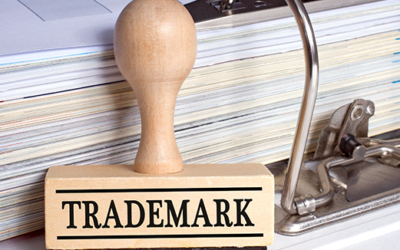DO I NEED A TRUST IF MY ACCOUNTS HAVE BENEFICIARIES?
Since you can name a beneficiary on accounts (sometimes referred to a Payable on Death or POD) such as checking and savings accounts, money market accounts, investment accounts, life insurance, 401Ks, IRAs, annuities and more, many believe that an estate plan is not necessary.
A Well Thought Out Estate Plan
An estate plan encompasses more than a will or a trust. It should also include a Property Power of Attorney and a Healthcare Power of Attorney, possibility a Living Will (DNR) among others. If you choose the route of forgoing a trust and listing beneficiaries directly with the financial institutions, please don’t forget that you will also need a will and these powers of attorney, even if you choose not to do a trust.
Legal Effects of Naming a Beneficiary on an Account
When you name a beneficiary on an account it overrides anything you have written in your estate plan. For instance, if you name one child as a beneficiary on an account, but in your estate plan you state that you want all of your children to share the estate equally, the one child will be the sole beneficiary of the account they are listed on, regardless of what your estate plan states.
Flexibility
If you name a trust as the beneficiary (or change the title of the account to the trust) then your trustee can distribute your estate according to you wishes, taking into account all of the instructions you left in the trust.
The biggest benefit of using an estate plan (a will and a trust) to manage the beneficiaries is the ability to make changes in one place. If you wish to change a beneficiary, say if someone passes away or is no longer in your favor, or you wish to add someone, then you simply need to do a trust amendment rather than to go and change each and every account. The danger of missing an account is great.
I’ve had several beneficiaries in my office who come to me and say, mom or dad missed this one account. Unfortunately, that does cause more work and sometimes it means opening a probate estate on that one account that was missed.
A Risky Proposition
Relying on beneficiary designations can be a risky form of an estate plan. There is a chance that you could miss an account or forget to update a beneficiary. You need to stay on top of it without delay if a beneficiary passes away, or someone that you want to inherit becomes an adult, or any myriad of situations that may come up which can affect who inherits. If you are relying on this method for your estate plan you should review the beneficiaries at least annually. You should also do an audit of every single asset you own and make sure it is listed correctly. Certain types of accounts that are often missed include life insurance, paper stocks, benefits you may have through your employer, accounts that never got rolled over from previous employers, inherited accounts and the like. Also, you will need to double check your accounts whenever a merger or takeover occurs with any of your financial institutions.
When Things Get Complicated
Naming a minor as a beneficiary on an account can create complications that the account owner didn’t intend. If you want to list a beneficiary who is not yet an adult, then when you pass that beneficiary may need to go to court to have a guardianship established by an adult to manage the money until that beneficiary turns 18. Do you really intend for an 18 year old to get that lump sum at that age? With a trust, the inheritance can be managed for them until they reach a more appropriate age to inherit a large sum.
You might think, well I’ll just list someone else who is an adult and they’ll make sure the minor gets the money when they are ready. This too, has unintended consequences, such as gift taxes, what if the adult doesn’t want to hand it over to the child when they come of age, what if the adult has to declare bankruptcy or has a legal action against them causing the money they inherited to be at risk?
Keep in mind that a trust is already set up to handle these types of situations quite easily and without involving a court, fees, and delays.
Trust Terms
A well written trust will be able to handle alternate beneficiaries, spendthrift provisions, beneficiaries with special needs or who are receiving state funding and keeping money in the trust for minor beneficiaries and much more. While naming a beneficiary on an account cannot handle these special situations.
Real Property
You must also consider that an estate plan can also manage real estate (and don’t forget about those time shares!). You can’t simply list a beneficiary on a deed like you can with a financial account.
Careful with Beneficiary Listings
There are times when listing the beneficiary directly, and the estate plan as an alternate beneficiary would make more sense. When the trust is listed directly, and lumped together with all the estate assets, then it can also become subject to paying toward your debts you may have at the time of your death.
Setting it Up Right
In this professional’s opinion, the trust is the safer way to plan for your estate. It’s flexibility, and ability to manage many different situations which simply cannot be foreseen makes it the better vehicle for handling an estate. That being said, for very simple and small estates, listing appropriate beneficiaries can be a good way to manage assets, on occasion.
- Be careful to list an appropriate beneficiary, list an alternate beneficiary when you can,
- Do an audit of all of your assets, being sure to double check the beneficiaries (I suggest getting a paper or electronic verification and keep it with an estate plan folder),
- Review these designations yearly,
- Update if any of the beneficiaries pass away, become disabled, are receiving disability (or other) benefits,
- Complete a will so that any potentially missed assets will at least be distributed to your chosen beneficiaries if your estate does make it to probate.
We Can Help You Create a Seamless Estate Plan
There is a right way and a wrong way when it comes to listing a beneficiary on an account and creating a seamless estate plan. The best approach is to start by contacting Allison Cychosz at AMC Legal for a free consultation. Let’s create the best plan that works perfectly for you.









0 Comments